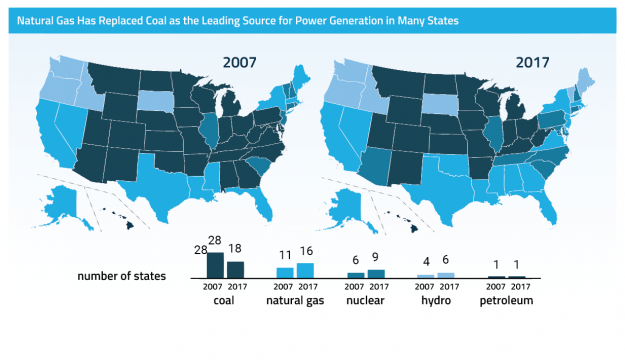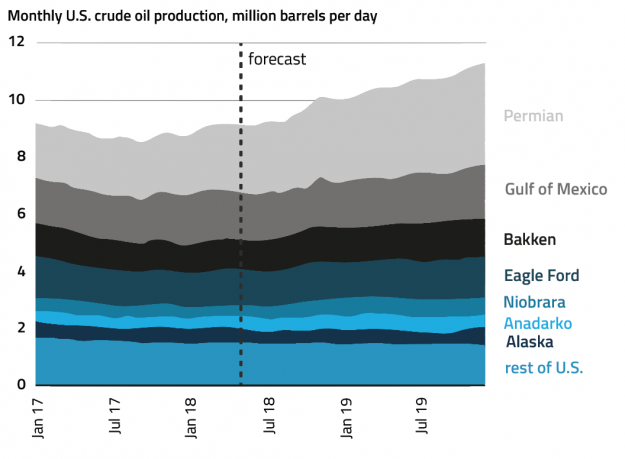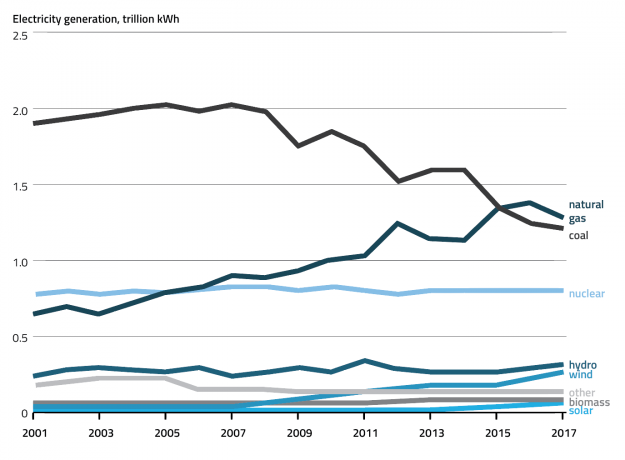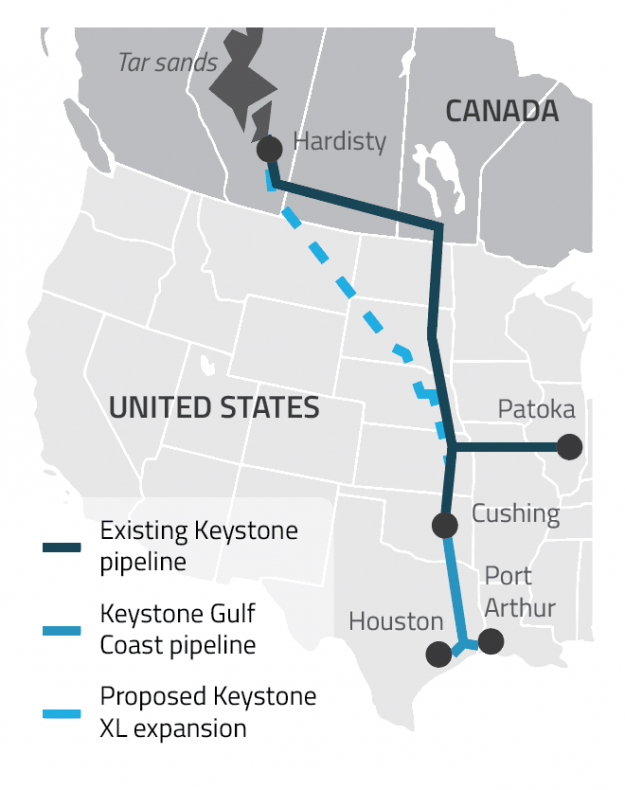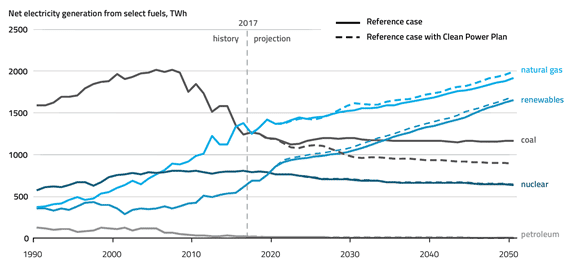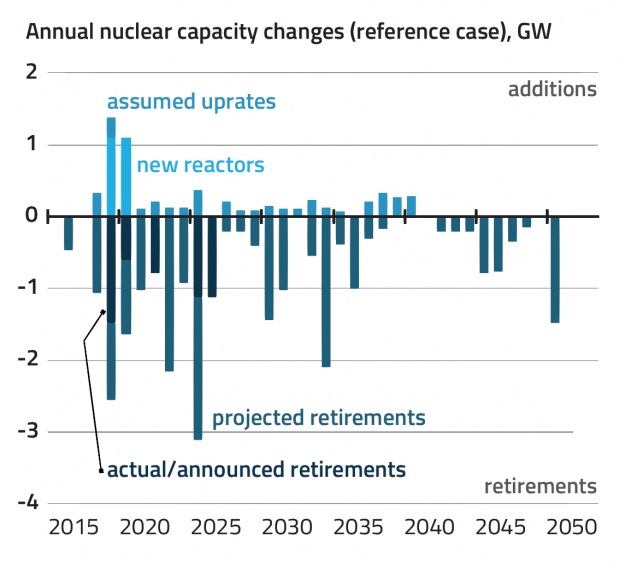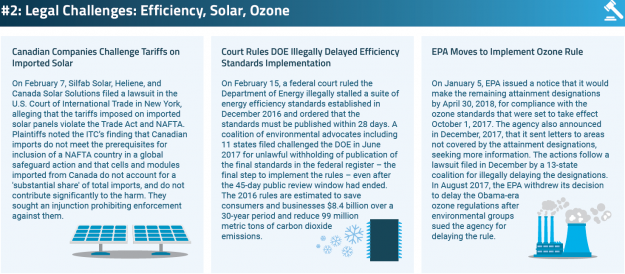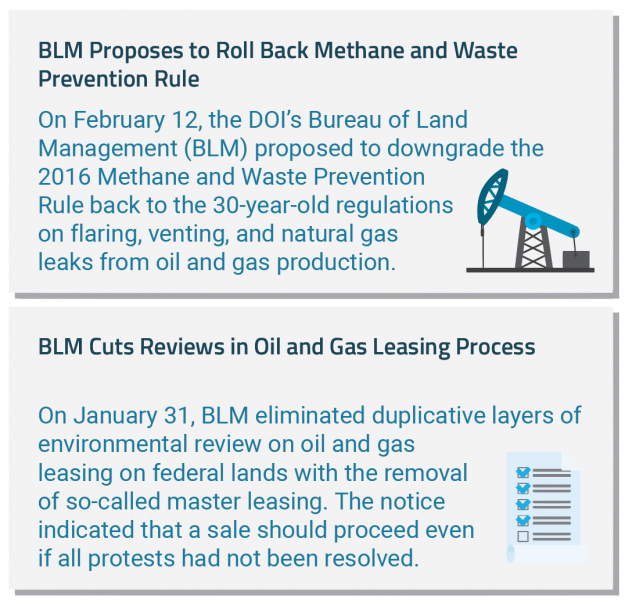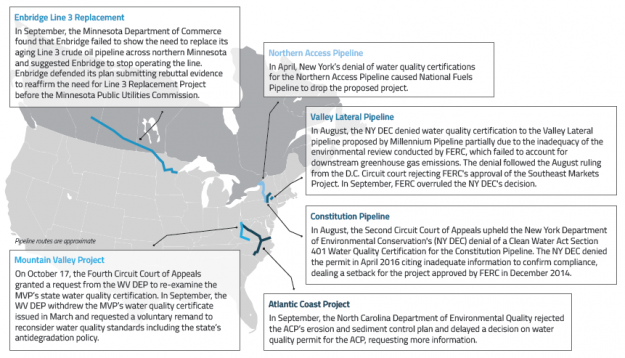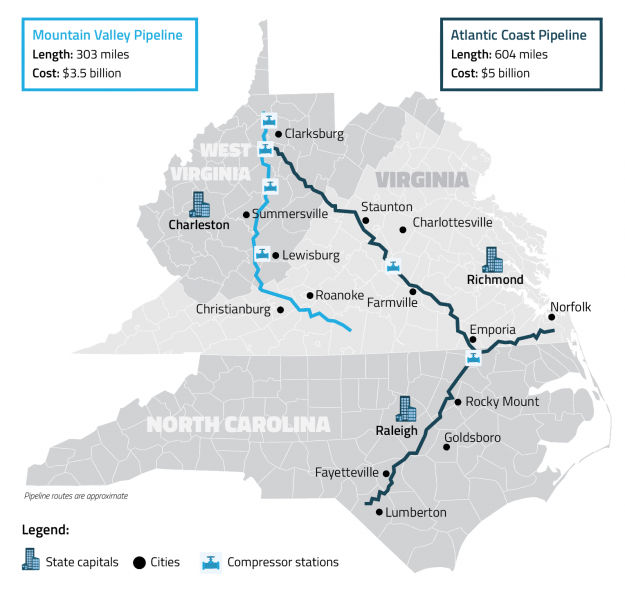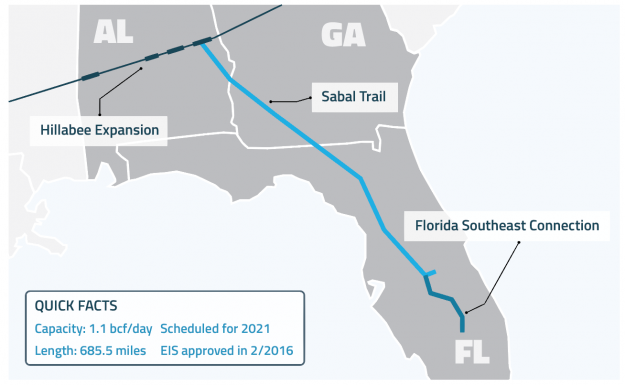EnerKnol’s Visual Primer – U.S. Natural Gas is Reshaping Global Markets and Domestic Power Generation
The U.S. shale revolution which kicked off a decade ago ushered in a new era for natural gas which has reshaped the power grid overtaking coal as the dominant source of electricity generation and established a thriving market for liquefied natural gas exports. The U.S. has remained the world's top producer of natural gas since 2009, and natural gas accounts for a third of all U.S. electricity generation. Last year, the U.S. became a net natural gas exporter for the first time in almost 60 years. The trend is expected to continue with growing production, increasing export capacity, and expanding gas infrastructure.
